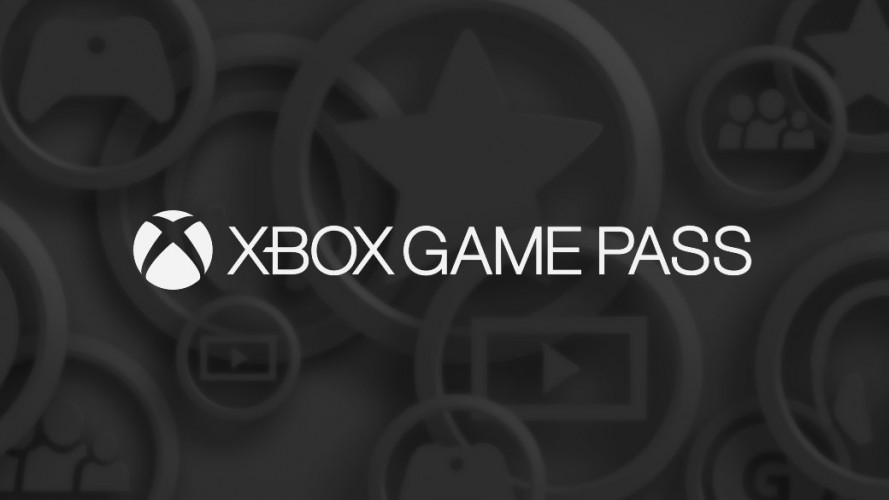Xbox One owners get access to Xbox Game Pass today. Understandably, this has people in my line of work excited. With the Electronic Entertainment Expo not kicking off until around mid-June, at least we have something to talk about. Now if only people would talk about it seriously. And by “seriously,” I mean having something to say that takes into account how people game today.
The basics of Xbox Game Pass are simple enough that there shouldn’t be room for confusion. For $9.99 a month, Microsoft lets Xbox One owners download from the Game Pass library. These games aren’t streamed. Instead, they’re stored on the gamer’s console. Microsoft has promised to update the library regularly with new titles, tough what’s in there now is a collection of Who’s Who exclusives and sports games from the Xbox 360 and Xbox One. Xbox Game Pass is different from PlayStation’s PS Now in that it costs less and you have to download the titles.
It’s so simple that you’d think there would be nothing else to say, especially from Microsoft watchers. You’d be wrong. Microsoft blogger Paul Thurrott has what I consider a very interesting take on Xbox Game Pass’ advantages and disadvantages.
“More to the point, it is PSNow and not Xbox Game Pass that is truly a “Netflix for video games.” After all, Netflix is a streaming video service, not a service like iTunes where you purchased content, download it, and then enjoy it. (Yes, I know that you can download some Netflix content now to devices for offline viewing. That is a secondary activity and always will be.)”
Sunset Overdrive is a Xbox Game Pass title.
The rest of his post on Xbox Game Pass runs along the same lines. He seems pleased with the line-up but feels Xbox Game Pass isn’t as good as Netflix or Hulu Plus because it requires a download.
To me, this criticism seems based on the same flawed logic that got Microsoft into trouble with the Xbox One at launch. You absolutely, positively, never want to assume that people will have a quality internet connection. What’s more, you never want to assume forcing gamers to stay connected to the internet is fine.
The solid internet connectivity that’s needed for game streaming forces some users to do really bad things. Things like tethering their phone to their console in the hope that a game will connect to servers and work correctly. Second, bandwidth allotments are getting slimmer by the day. Unless your compression is magical, streaming on hours can put you over a bandwidth cap faster than if you’d downloaded a game.
You can download Halo 5: Guardians through Xbox Game Pass.
Xbox Game Pass only assumes that you have enough bandwidth to download the games and enough storage space to keep them around. Download them to a hard drive at friend’s house and tether to your phone once a day to keep them going. It syncs once a day to make sure that your Game Pass is active, after that, you can play these games offline without an internet connection at all. It’s worth pointing out that some Xbox games will let you play before they’ve finished. Surely, that’s worth a mention in this debate.
Paul makes the argument that anyone willing to pay for Game Pass will have decent internet. That’s not necessarily true. Xbox Game Pass is aimed at people who have an Xbox One but don’t want to spend money to get games that are around two years old. I wouldn’t be so quick to declare that these people have robust internet access with unchecked bandwidth. They’re looking for value.
I was on the wrong side of this argument last time. In 2013, I said that forcing people to connect to Microsoft’s servers was ridiculous because everyone spending $500 on a console would have decent internet. I declared that digital games were the future and that the gaming press was making too big a deal about forced internet access.
NBA 2K16 is in Xbox Game Pass.
I’m not saying that Paul’s mind isn’t in the right place. Even if he does come to the wrong conclusion. He believes that downloading a game is a barrier that people with high-speed internet will want to go without. It can take hours to download an Xbox One game, I’ll give him that. You can’t impulsively play a game from the Game Pass catalog. He points out that he often starts content on Netflix before moving on to something else he thinks he will like more. That’s fair, I suppose.
The problem is that games aren’t movies or television shows. That’s where my own thinking went wrong last time. They’re more complicated, active experiences. Conceptually, your mind makes different associations about them. You’ll download them once and keep coming back to play. More importantly, you expect them to work with or without an internet connection, at least for some period of time. Also, internet companies are jerks, but that’s a different conversation.
Xbox Game Pass makes the right assumptions about your internet connection and where gaming is in general. That Microsoft went that direction without a public outcry is surprising. Especially since this is the same company that got blasted in 2013 for telling people to buy Xbox 360s if they wanted to play offline. Clearly, the company learned from its last tango in Paris.
Don’t listen to these other folks, Microsoft. Xbox Game Pass is just fine.

